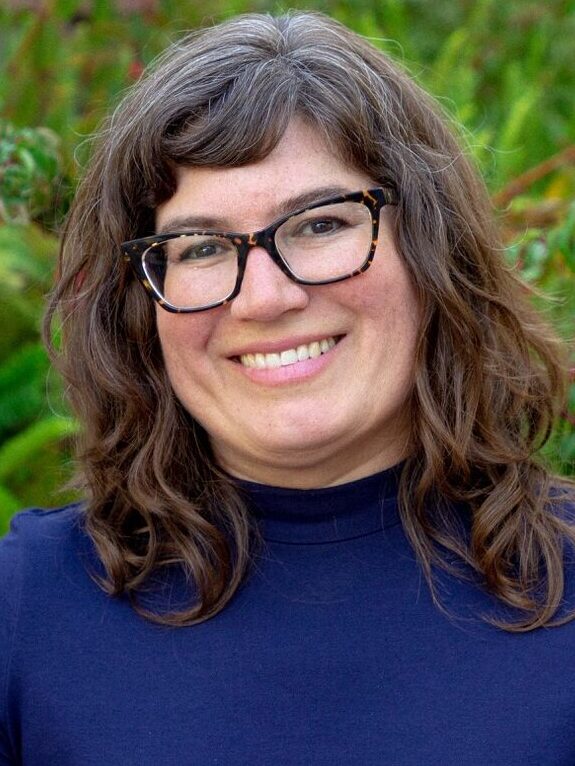Joy Schendledecker, candidate for District 3
Santa Cruz voters will choose a city council member to represent District 3 in the March 5, 2024 election. The district includes parts of the Upper and Lower Westside.
Joy Schendledecker is one of two candidates running for the District 3 seat. The other candidate is Shebreh Kalantari-Johnson.

Joy Schendledecker (Contributed)
Meet Joy Schendledecker
Age: 48.
Residence: Near Escalona Drive and Bay Street.
Occupation: Artist, organizer and teacher.
Experience: Schendledecker has “been involved for more than 20 years in various kinds of community organizing” around issues including waste reduction and homelessness advocacy, she said. She also served on a board of governors at an elementary school in London for two years.
Read about Joy Schendledecker’s positions:
Read why Joy Schendledecker is running for city council
What local issues in your district affect you that make you want to run for office?
Schendledecker has personal connections with some unhoused people, which informs her advocacy, she said. She is also personally invested in alternative transportation. “I ride my bike and walk a lot, so bus service, and the quality of bus shelters, as well as bike lanes and pedestrian access are all important to me,” she said.
What is your dream for your district?
“My dream for the district and really the whole world is for everybody to have reproductive justice, meaning that we all have the agency and the means by which to live our lives and live our lives well,” Schendledecker said. “So we have good jobs, we have good schools, we have access to public transportation. We have access to health care, including reproductive health care for everyone.”
Schendledecker said city leaders should hold meetings in each city council district to increase public participation. “People can be organizing themselves and feeding their needs and ideas and solutions up to their elected representatives, rather than having a more top-down system, where we’re consulted a little bit and told what’s going to happen,” she said.
Fun fact about Schendledecker
Schendledecker is from the East Coast and is of German heritage, she said. “Thanksgiving is not complete without sauerkraut,” she said.
Campaign finances
See campaign contributions to Joy Schendledecker and all local candidates.
Endorsements
Read more Santa Cruz Local stories
- Mental-health crisis response could expand in Santa Cruz County — June 2, 2023
- Santa Cruz leaders approve $1M plan to close Benchlands camp — Aug. 23, 2022
- Santa Cruz needle exchange group sued — Dec. 9, 2020


